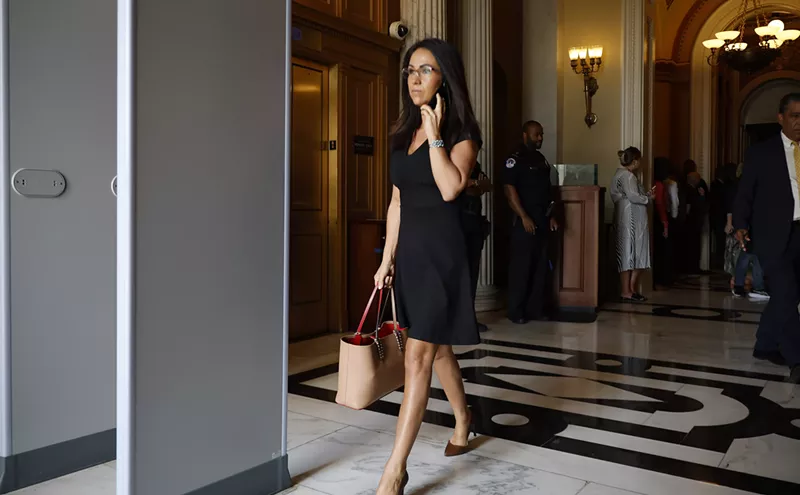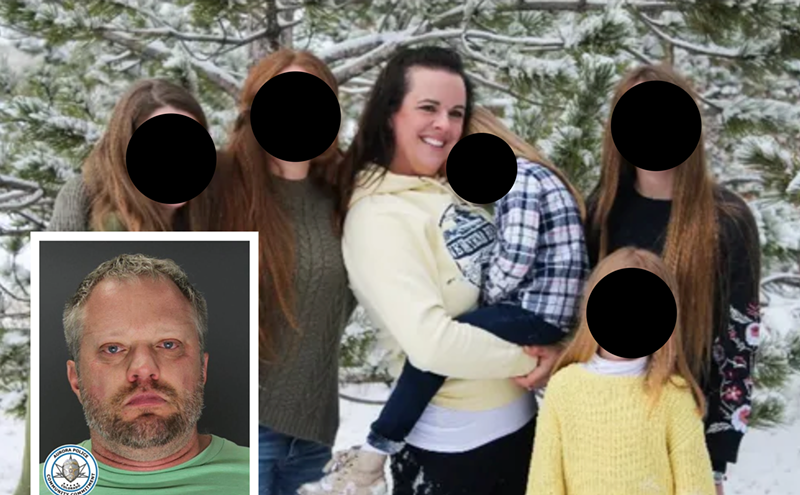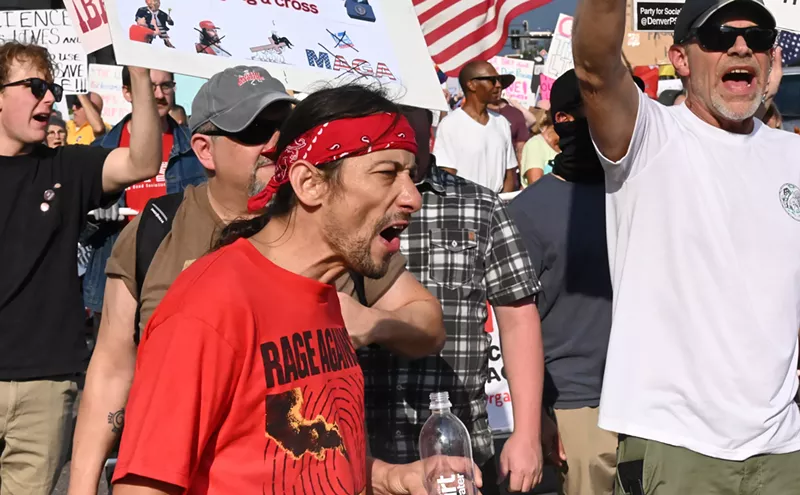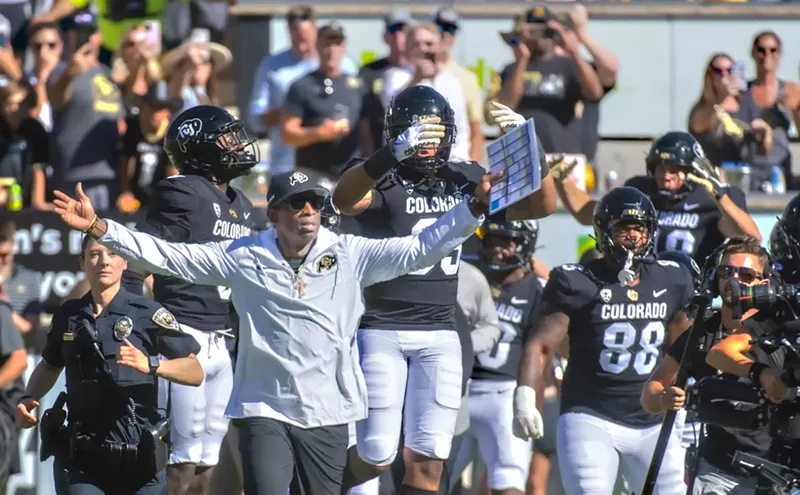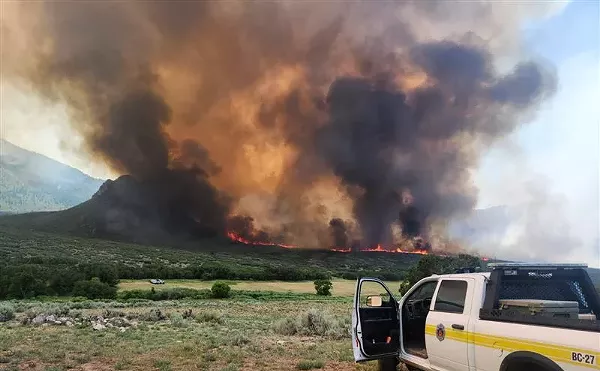Afterward, Sweetin was quoted as saying, "The time is coming when we go into a dispensary, we find out what their profit is, we seize the building and we arrest everybody. They're violating federal law." That was enough for some people to label him a rogue agent, one who wasn't respecting new federal rules regarding state medical-marijuana laws. Since then, Sweetin says folks have filed complaints against him, threatened him with lawsuits, even sent him death threats.
But Sweetin believes most journalists got the story wrong. To set the record straight, Sweetin invited Westword to a sit-down at DEA's Denver headquarters. Page through below to get Sweetin's in-depth take on medical marijuana, the media and the future of pot.
Regarding the Bartkowicz case: "What's developed is this idea of a rogue DEA agent that's going after dispensaries, that is kicking doors down, raiding small grows that are violating federal laws but are consistent with state law. None of that is factual," Sweetin says.
"We learned about the story from Channel 9's blog, where they had a guy talking about his marijuana grow in a suburban neighborhood. We were led to believe it was a massive grow in a suburban area and that the owner expected to make $400,000 or more a year. We thought, 'This guy may be outside the line.' You think, 'Suburban,' you think, 'kids,' you wonder, 'Is there a health risk?' What really happened was you had a large grow next to a school. There are some you can overlook and there are some you have to take a look at.
"We keep hearing about this raid, but there was no raid. We knocked on the door and they let us in. We didn't kick in the door and gun-face everybody.
"The other issue that's been strangely absent from all of the stories is that this was obviously a violation of both state and federal law. Why has that been omitted?
"After discussions with the individual, we were led to believe that he was aware that what he was doing was outside of state law. Based on his account, we could not tolerate it in good consciousness. Had it been somewhere else, a different guy, a different number of plants, I'm not sure what we would have done."
Regarding how the local media covered it: "We've embarked on an effort to tell the real story. What's driving the controversy is the desire on the part of the mainstream media to develop stories that are scandalous. The more we give them the facts, the less they want to talk to us, which has been interesting.
"I have been doing media out of this office for about eight years. I think we are the most open DEA office in the country. I never until now have seen what appears to be a desire and willingness to print what's not factual. I've been very clear and available to the media to explain what we're doing and not doing regarding marijuana, but it's just not a story that they like.
"The hysteria is good for some people. It's great for the TV news media. It's great for the attorneys that keep it whipped up.
"I believe the Denver Post is telling one side of the story and its telling it one way. I think that's a shame. They don't realize the impact they're having on their readers.
"When I met with [Channel 9] reporter Deborah Sherman, I agreed to do an interview on the day of the arrest to make sure people understood what the DEA was doing and not doing. They chose to put out that we were rogue, that the DEA has been told not to enforce federal marijuana laws. And that is absolutely not the case.
"I think the problem with complicated social issues is we can't explain the issues in one sentence. In order to tell that story, people need details. I think we've become a society where whatever the TV sound-bite is, that's what my opinion is based on.
"Isn't it interesting that the place willing to print my side is Westword?"
Regarding Sweetin's "We arrest everybody" quote: "The quote that's constantly being used was part of my discussion about dispensaries. The question really was, are dispensaries in violation of federal law. The answer is yes. Clearly. I don't think anybody doubts that.
"But we have never raided a dispensary. If you don't believe what I say, believe what we've done. There may be instances where people masquerading as dispensaries are tied to a case we are doing, tied to foreign drug organizations, and have lately seen some of that with CannaMed and other organizations."
Regarding whether Sweetin was instructed by superiors to tone down his rhetoric after the quote was published: "Never happened. Have I been told to stand down? Absolutely not. I have not been told to stand down because there is nothing to stand down on."
Regarding whether the DEA is going after dispensaries: "We have not nor are we interested in hitting dispensaries. We are not interested in dispensaries, absent some aggravating factor. We know some dispensaries in Colorado are dispensing to cardholders and non-cardholders. That's a problem.
"The DEA will continue to do what we've done for three-and-a-half decades, which is go after drug organizations. We are at our best when we're doing that. We are not at our best when we are standing in a grow room trying to figure out whether it's a medical-marijuana operation.
"Some of the greatest success in US government history in drug enforcement have come out of this office. Oscar Arriola landed here. Miguel Caro Quinterro landed here. We were told we would never get them. What we do is we investigate people all over the world. Marijuana is a huge distraction.
"We're the lowest-staffed DEA division in the word and we cover 1.5 million square miles and over 180 counties, and all of them have some drug problems. Would it be appropriate to say, 'Everybody fall in, we are going after dispensaries'? No, that's not what we do best.
"We are not going after sick people. There are sick people in the state who believe marijuana is helping them. We may have opinions on that, but that is not what we are in this for.
"Half of my e-mails say, 'You suck,' half of my e-mail say, 'You're great, go after the SOBs.' In the middle is where we operate.
"I believe I could do a lot more than I am doing. I choose not to. I believe in using my resources in other ways."
Regarding whether DEA has been instructed not to do medical-marijuana cases: "People say we've been told not to do medical marijuana cases. That is not true. And the people who've decided to tell that story have read the Justice Department guidance [Editor's note: In October, the Justice Department instructed federal prosecutors to defer to state medical marijuana laws -- but not if there were other potential crimes involved or in cases that were clear violations of state marijuana laws]. Since the guidance came out, I have repeatedly told the media what it says. It's critical that we do not do anything that would not be consistent with that guidance."
Regarding discrepancies and confusion within the state law: "I think dispensaries need to understand, if they are getting information on legal appropriateness from medical-marijuana lawyers or from the media, they may not want to do that.
"I think Rob Corry and the other marijuana lawyers would tell [dispensary owners], 'You are in violation of federal law. The problem is, nobody can tell you what is going to happen six months from now. The way the law is written, they are in violation of federal law. What that looks like down the road, I have no idea. I think you are in a risky business, from a legal standpoint. I don't know how anybody can suggest you are safe to operate a dispensary.'
"We were promised by those who supported medical marijuana that the price would go down, that law enforcement would have time to pursue other cases. But marijuana prices are as high or higher than on the street. And you've got police chiefs and sheriffs is they seize marijuana, they have to keep it alive [until the case has been concluded]. Has anyone ever called 911 and asked for the police and been told, 'They are out tending the marijuana, grow, man.'
"We aren't going to be able to turn the tide regarding medical marijuana in Colorado. If you disagree with it, my advice would be, get involved. Don't expect the DEA to do it. That's not what we are here for."
Regarding Rob Corry, a prominent marijuana attorney who's spoken out against Sweetin's actions during the Bartkowicz case: "I don't know Rob Corry. I know he filed a complaint against me. Rob Corry has the absolute right to complain about what I did. I would tell you the complaint is ridiculous."
Regarding several recent letters written by state politicians expressing concern about the Bartkowicz case: "Those guys have the absolute right to ask what is going on. Although none of them have called me and asked what we are doing."
Regarding whether marijuana should be classified as a Schedule II narcotic: "People need to understand I enforce federal law. As long as marijuana is a Schedule I narcotic, it's not medicine.
"I don't believe the medicinal uses of marijuana have been proven enough to move it to a Schedule II. I would say, 'Look. There are a lot of things you would want to look at. You would want to look at the research. If marijuana were moved to Schedule II, that would change how it is enforced. The additional regulations of marijuana would be phenomenal."
Regarding efforts to legalize marijuana: "I believe this medical marijuana is a lot less about medicine than it is about legalization. With marijuana, the reason this has become so provocative as an issue is we are seen as the only game in town: 'If the DEA would just stand down, we would have marijuana legalized in this state.'
"What would legalization at the Colorado level look like? I am not sure it would be that different for us. Who is going to regulate it? The DEA is not going to regulate it. We are not regulators of state policy. If marijuana gets changed federally? We would just take a pen and cross marijuana off our list. The assumption is that we need marijuana to do our jobs. Marijuana is a small niche of what we do. I think the marijuana attorneys need it to do their job.
"It would be easier for drug enforcement people if it was legal. But I worry about the additional problems we're looking at in Colorado in a few years, as a parent and a family guy. We need to be honest with ourselves: Is this right for our kids?"



